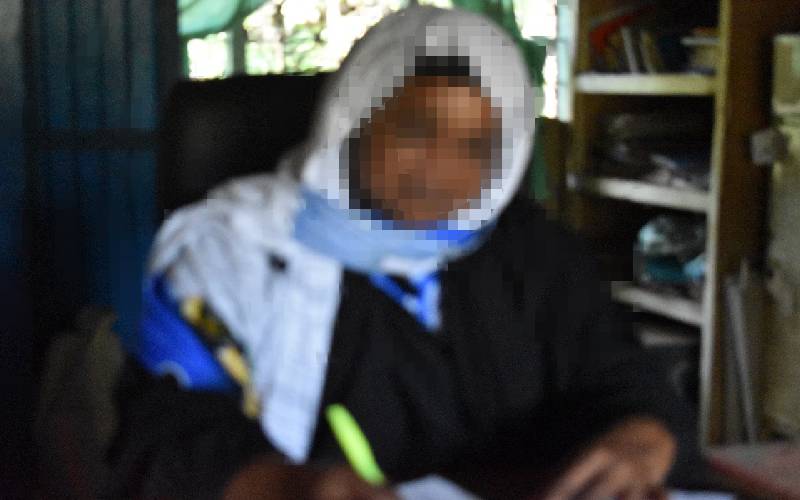×
The Standard e-Paper
Kenya’s Boldest Voice

Madam Afia (not her real name), 58, a headteacher at a primary school in Matuga Constituency, Kwale County going through a teacher attendance sheet in her office on June 13, 2021. [Sigomba Ramadhan]
Madam Afia (not her real name), 58, a head-teacher at one of the primary schools in Matuga Constituency, Kwale County, says that she is willing to quit her job instead of being vaccinated.